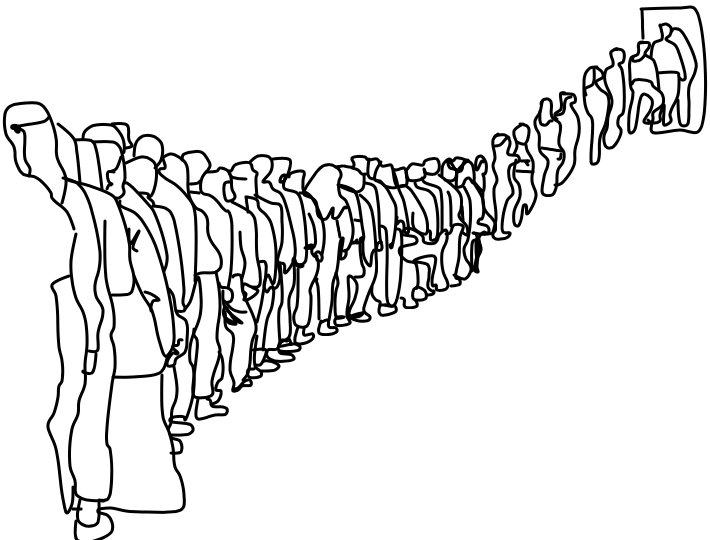
During the last couple of years, the topic of legal immigration has become an issue brought to the forefront of American politics. Under the Trump administration, the Democratic and Republican parties have become more polarized about the topic. Many Democrats support the abolishment of U.S. Immigration and Customs Enforcement (ICE) and many Republicans support Trump’s border wall.
On July 15, 2019, in an attempt to help clear the large backlog of immigrants waiting to receive green cards, the House of Representatives passed the “Fairness for High-Skilled Immigrants Act” by a vote of 365 to 65. This bill would phase out per-country limits for employment-based green cards and raise per-country limits for family-based green cards.
This means that the U.S. could give more green cards to highly-skilled workers, such as workers from China or India. However, the bill was blocked in the Senate by Republican Senator David Purdue, despite having some bipartisan support from the likes of Republican Senator Mike Lee. While this bill has not been completely shelved yet, it seems unlikely that a vote will actually occur. However, this discourse in the Senate brings up the question of whether this bill will actually help fix America’s legal immigration system. The answer, in my opinion, is that this bill does nothing to fix America’s inherently broken legal immigration system.
America’s immigration system has many flaws that the bill does not even address. There are two main types of green cards: one for work-based applicants and another for applicants with family who are already U.S. citizens. This bill does less to address wait times for immigrants who are applying for family-based green cards. Some estimates say it can take up to 10 years for brothers and sisters of U.S. citizens to receive green cards despite being directly related to U.S. citizens. Not only that, but the bill also does not address the green card backlog for lower-skilled workers. In order to effectively shorten the wait times for green card applicants, I think lawmakers should introduce a bill that can fix wait times for all these groups.
I believe that a bill that fixes immigration policy should devote more funding to processing green cards. Currently, the U.S. Citizenship and Immigration Services Agency is unequipped to deal with the number of green card applications the receive. If there was more funding devoted to processing green cards, then more applicants could be vetted and accepted.
Another thing the bill should do is eliminate caps that are set on the number of work applicants from each country. Currently, applicants from a certain country are only allowed to make up seven percent of the accepted green cards. This means that applicants from countries with a high volume of immigrants will not have their applications even looked at for many years, thus creating a backlog. Also, any immigration law should increase the current quotas put on the number of green cards for family-based immigrants. This action will allow for more close relatives to be given green cards without having to wait up to ten years.
While immigration is a complicated issue, there are many actions the government can take in order to help fix the system. However, based on the current state of Washington, progress on the issue of immigration will most likely not occur for a while. Nevertheless, it is important for people who are passionate about legal immigration to contact their representatives about making a change. Until change really does happen, the U.S. will be stuck with an immigration system that is inherently flawed. That is why I think it is critical for lawmakers to create meaningful immigration reform and to do it as soon as possible.
Eric Heffelfinger ’23 is from St. Paul, Minn. His major is undecided.

